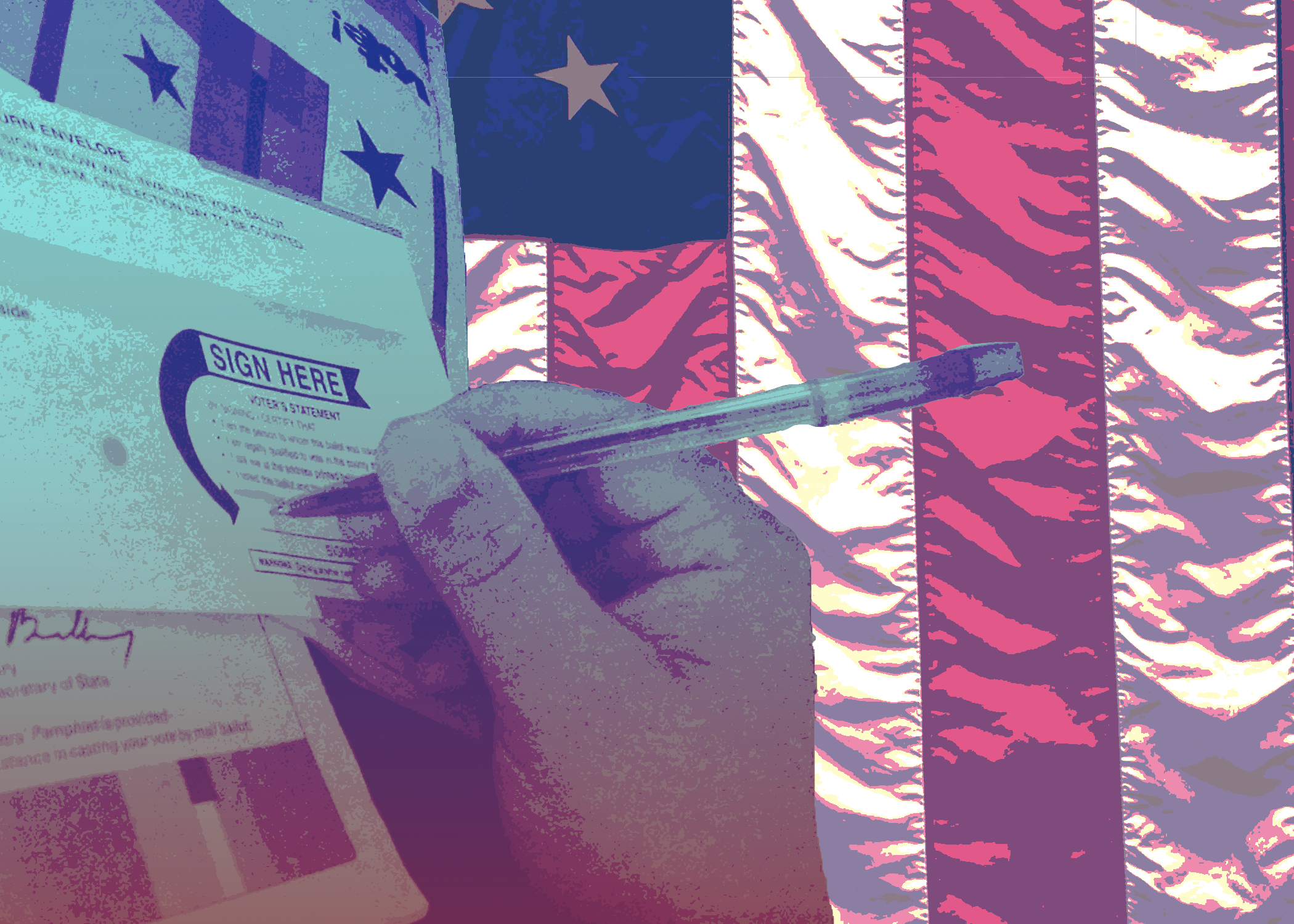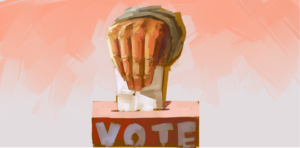In the midst of early voting season, I’ve begun to notice a trend: voting-by-mail is anything but convenient–even more so depending on which state one is mailing their ballot back to. As a currently out-of-state college student from Tennessee who doesn’t have the means to travel home to vote, I’ve run into a few small but significant barriers in voting absentee. And I’m not alone. Many college students, especially those attending an out-of-state university, don’t have the time or resources to travel home to vote in-person on election day. At Georgetown, an academically rigorous institution that does not cancel classes on November 5, students are likely to be inundated with work during early voting and on election day. The obvious answer, voting-by-mail, isn’t as simple as it seems. This is by design.
There has been a lot of rhetoric, especially in this historic presidential race, about the great significance of the 18-24 demographic and our power to decide this election so long as we go out and vote. I’m willing to bet the Georgetown student population is, on average, more politically active than this age group overall. However, depending on which state they hail from, voting absentee may not be that feasible. While I agree that we need to turn out at the polls–and I’ve mailed my absentee ballot back to my red county in a red state–students like me from conservative and battleground states face laws and other bureaucratic measures in place that attempt to deliberately suppress the voices of young people who tend to lean to the left of the political spectrum.
My home state, Tennessee, has a history of voter suppression and currently has some of the strictest disenfranchisement laws in the country. Roughly one in five Black Tennesseans do not have the right to vote due to a felony conviction, and the system to restore their voting rights is complex, requiring time and resources that most Tennesseans simply do not have. In June of this year, several legal non-profits, including the ACLU accused our top election official, Tre Hargett, of intimidation after he sent a vague and threatening letter to over 14,000 registered voters demanding that they verify their citizenship. Unsurprisingly, there are barriers in place to complicate voting by mail-in ballot, too.
In order to be eligible to vote absentee, Tennesseans must either register in-person or have voted in-person in a prior election. While this seems like a relatively innocuous stipulation, many voters are not aware of this rule. As unfortunate as it is, turnout for local elections is pretty dismal in most places, especially amongst the 18-24 voting bloc. Most people my age are voting for the first time in this presidential race. Shortly after registration for a mail-in ballot opens in early August (90 days before election day), most college students are already away from home. If out-of-state students registered online and try to request their mail-in ballot by email in, say, early September–two whole months prior to the election–then they’re out of luck.
The only reason I’m able to vote in this election is because my AP Government teacher told us about this rule my senior year of high school in order to prevent our voices from being suppressed. So, I made sure to vote in my local election this summer. Even still, the process of obtaining an absentee ballot for the presidential election was not smooth-sailing. I had to submit my request by email multiple times because it was originally the “wrong file type.” I’m also required to get first-class postage in order to mail my ballot back to Tennessee. My friends from blue states like Minnesota and New York were able to register online as first-time voters and don’t have to pay for postage. Thankfully, the GU Politics Living Room provides free postage, but not everyone has such easy access. These may seem like small, individual inconveniences, but they add up to massive barriers that prevent out-of-state college students and other young people in less solidly liberal states from voting.
One might imagine that as time goes on and more people advocate for the expansion of voting rights, we would move towards giving everyone a more equal voice. On the contrary, we’re moving backwards. This problem is not unique to Tennessee. According to the Voting Rights Lab, between 2020 and 2024, new voting restrictions, including those surrounding voter IDs and mail-in ballots, have been added in four out of eight key battleground states. During the 2020 election cycle, conservatives widely circulated claims that allowing absentee voting, which was expanded in many states because of the pandemic, leads to voter fraud. This effectively made absentee voting into a partisan issue, generally supported by democrats and opposed by republicans. After the election, they used this expansion as evidence that the election was stolen from Trump. Still today, they paint efforts to disenfranchise as a defense against election fraud, and efforts to expand access as an assault on democracy. In reality, they are the ones trying to dismantle the legitimacy of our democracy by convincing voters that they cannot trust election outcomes. Trump, Vance, and their election-denying allies that have cropped up in Congress, in statewide offices, and on our ballots, are knowingly spreading disinformation and stoking fear about election fraud in the upcoming presidential race with the goal of delegitimizing the electoral process.
There’s no wonder why voter turnout is so much lower in the United States than in other democracies, and particularly amongst young people. We are made to feel like our voices don’t matter, like we don’t deserve to have a say in who runs our country. On the other hand, those who fall victim to right-wing rhetoric like that of Trump and Vance feel that because the election results are predetermined or rigged (to be clear, they’re not), their votes are pointless, too. This is why we have to push back. This is why we have to use our voices to vote for candidates who will advocate for us. And, if they don’t, we can advocate for ourselves. If you’re able, please vote this November, but don’t let that be the be-all and end-all of your political involvement. Even if the candidate you support ends up in office, keep advocating for the issues you care about. Even if it doesn’t feel like it, your voice matters everyday, not just on Nov. 5.







